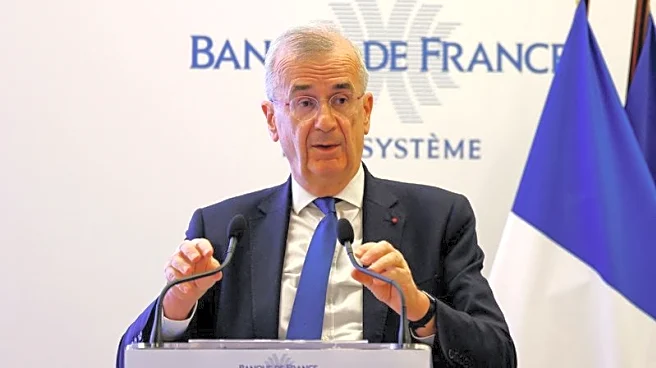What's Happening?
Maccabi Tel Aviv has decided to waive its allocation of away tickets for the upcoming Europa League match against Aston Villa in Birmingham, citing serious security concerns for its fans. The decision follows an unprecedented move by West Midlands Police
to ban Maccabi Tel Aviv supporters from attending the match, due to public order and security issues. This ban has sparked criticism from Israeli officials and football fans, marking a rare instance of a complete away-fan ban in European competition. Maccabi Tel Aviv emphasized its commitment to fan safety and expressed gratitude to the British government for reviewing the police decision.
Why It's Important?
The decision to waive away tickets highlights the ongoing challenges of ensuring fan safety in international sports events. It underscores the impact of security concerns on team logistics and fan engagement, potentially affecting the atmosphere and dynamics of the match. The ban reflects broader issues of public safety and the complexities of managing large-scale events in diverse cultural contexts. For Maccabi Tel Aviv, this situation emphasizes the importance of prioritizing fan welfare and navigating international relations, while for Aston Villa, it may alter the match environment and fan interactions.
What's Next?
Maccabi Tel Aviv will focus on ensuring the safety of its fans and players while preparing for the match against Aston Villa. The club may engage in discussions with security officials to address concerns and explore future opportunities for fan attendance under safer conditions. The British government and West Midlands Police may continue to review security protocols for international matches, potentially influencing policies for future events. The situation may prompt other clubs to reassess their security measures and fan engagement strategies, considering the implications of such bans on team dynamics and international relations.
Beyond the Headlines
The ban on Maccabi Tel Aviv supporters raises questions about the balance between security and inclusivity in sports. It highlights the ethical considerations of restricting fan access based on security assessments, potentially affecting cultural exchange and international sports diplomacy. The situation may lead to discussions on improving security measures while fostering an inclusive environment for diverse fan groups. Additionally, it underscores the role of sports in bridging cultural divides and promoting unity, challenging stakeholders to find solutions that prioritize safety without compromising the spirit of international competition.

















